เคล็ดลับการลงเงินสําหรับการเยี่ยมชมญี่ปุ่น: แลกเปลี่ยนเงินตรา ตู้เอทีเอ็ม และอื่นๆ

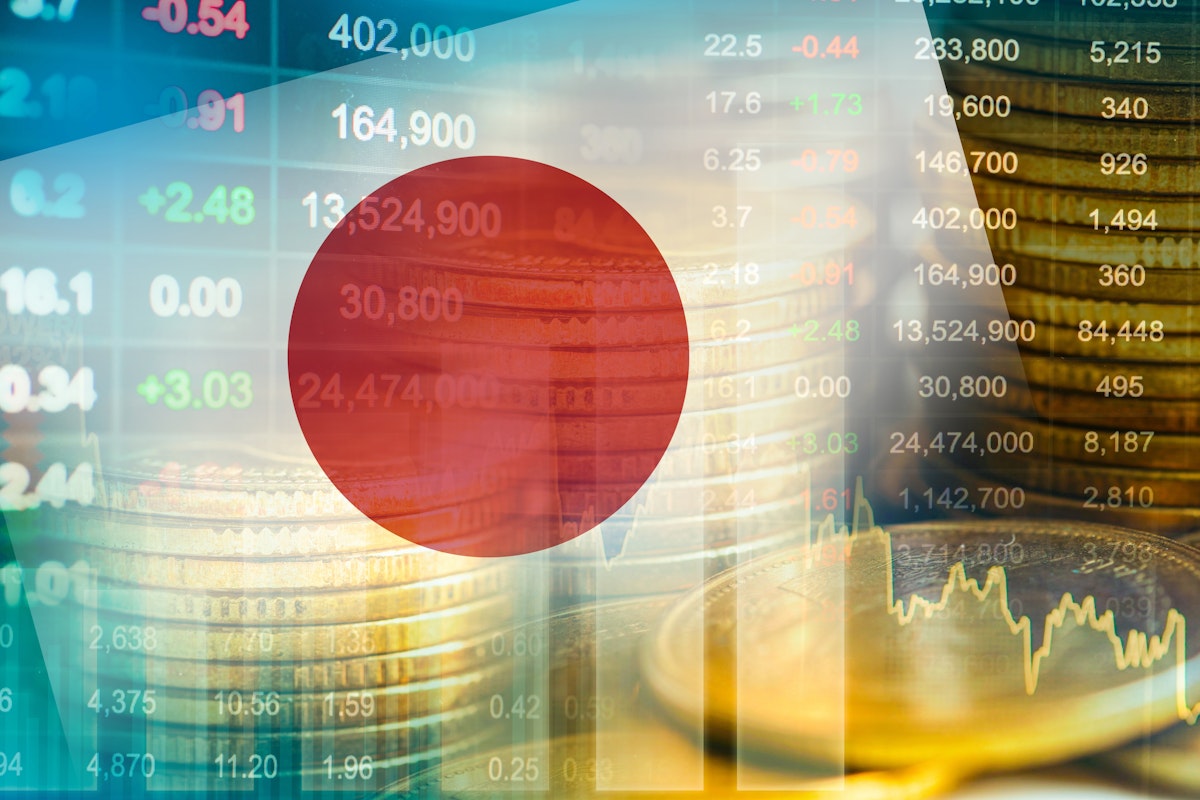
ญี่ปุ่นเป็นดินแดนแห่งความแตกต่างที่ประเพณีโบราณอยู่ร่วมกันอย่างลงตัวกับเทคโนโลยีล้ําสมัย ตั้งแต่ศาลเจ้าอันเงียบสงบและตลาดริมถนนที่พลุกพล่านไปจนถึงเมืองแห่งอนาคตอย่าง โตเกียวประเทศนี้มอบประสบการณ์ที่ยากจะลืมเลือน
อย่างไรก็ตาม เบื้องหลังเสน่ห์ของวัฒนธรรมและนวัตกรรมอันร่ํารวยคือความท้าทายในทางปฏิบัติสําหรับนักเดินทาง นั่นคือการจัดการการเงินของคุณอย่างมีประสิทธิภาพ ญี่ปุ่นยังคงใช้เงินสดเป็นหลัก และการทําความเข้าใจระบบสกุลเงิน วิธีการแลกเปลี่ยน และแนวทางปฏิบัติในการชําระเงินที่เป็นเอกลักษณ์เป็นสิ่งสําคัญเพื่อหลีกเลี่ยงความเครียดที่ไม่จําเป็น
คู่มือนี้จะช่วยให้คุณมีทุกสิ่งที่คุณจําเป็นต้องรู้เกี่ยวกับสกุลเงินญี่ปุ่น การใช้ตู้เอทีเอ็ม การแลกเปลี่ยนเงิน และเคล็ดลับในการจัดการธุรกรรมระหว่างการผจญภัยของคุณ

สัมผัสประสบการณ์โตเกียวอย่างที่ไม่เคยมีมาก่อนในทัวร์ตลอดทั้งวันของเรา
ทําความเข้าใจสกุลเงินของญี่ปุ่น
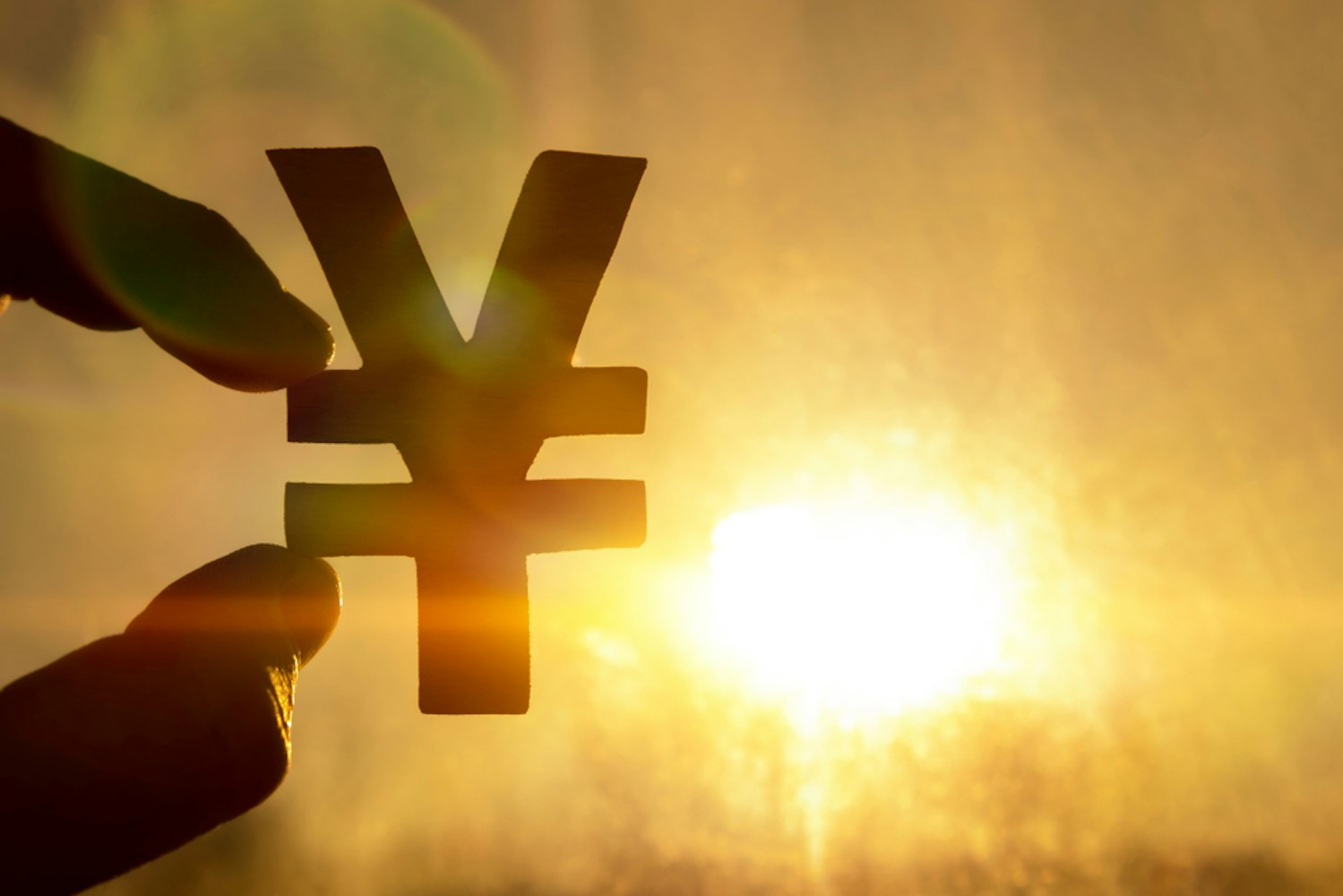
สกุลเงินอย่างเป็นทางการของญี่ปุ่นคือ เยนญี่ปุ่น (JPY) แสดงด้วยสัญลักษณ์สกุลเงิน ¥ เป็นสกุลเงินที่มีการซื้อขายมากที่สุดเป็นอันดับสามของโลก
เป็นหนึ่งในสกุลเงินที่มีเสถียรภาพมากที่สุดในโลกและมีการซื้อขายมากที่สุดเป็นอันดับสามของโลก
สกุลเงินเยนญี่ปุ่น
ธนบัตร: 1,000 เยน, 5,000 เยน, 10,000 เยน – ประดับประดาด้วยสัญลักษณ์ทางวัฒนธรรม เช่น ภูเขาไฟฟูจิและดอกซากุระ ธนบัตร 10,000 เยนเป็นที่ยอมรับอย่างกว้างขวางสําหรับการซื้อต่างๆ แม้กระทั่งการซื้อขนาดเล็ก ซึ่งเน้นย้ําถึงความสําคัญของการทําธุรกรรมเงินสดในสังคมที่ใช้เงินสดเป็นส่วนใหญ่ของญี่ปุ่น
เหรียญ: 1 เยน 5 เยน 10 เยน 50 เยน 100 เยน 500 เยน – ใช้กันอย่างแพร่หลาย โดยเหรียญ 500 เยนใช้งานได้จริง เหรียญญี่ปุ่นมีบทบาทสําคัญในการทําธุรกรรมในชีวิตประจําวัน และนักเดินทางจําเป็นต้องทําความคุ้นเคยกับสกุลเงินต่างๆ และลักษณะเฉพาะของเหรียญ
เงินเยนได้รับการยอมรับจากรหัสสกุลเงิน JPY ซึ่งเป็นสัญลักษณ์ของเสถียรภาพทางเศรษฐกิจของญี่ปุ่น
สังคมที่ใช้เงินสดเป็นส่วนใหญ่ของญี่ปุ่น
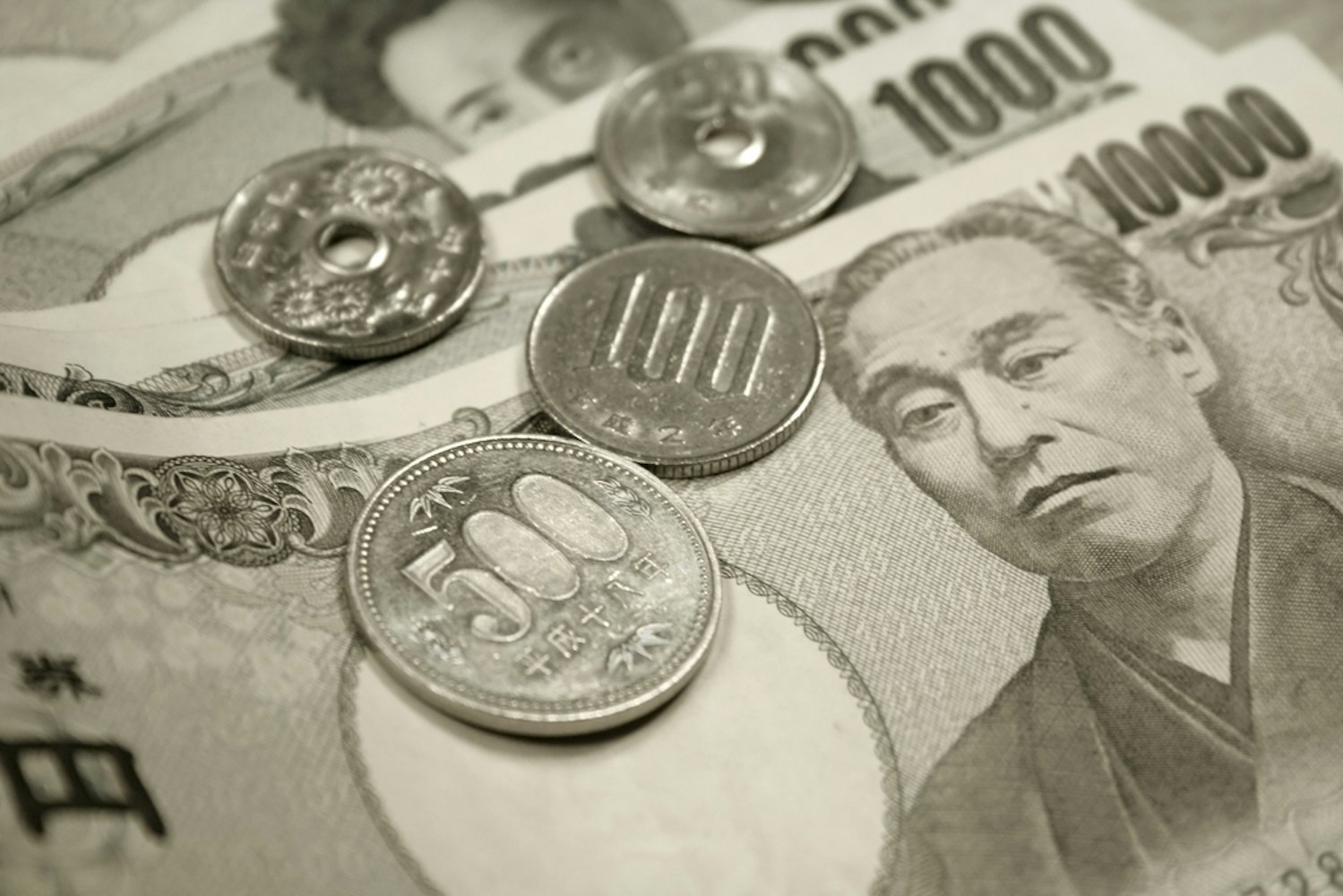
แม้จะมีเทคโนโลยีล้ําสมัยและชื่อเสียงของญี่ปุ่นในฐานะผู้นําด้านนวัตกรรม แต่เงินสดยังคงครอบงําการทําธุรกรรมประจําวัน ในขณะที่เมืองใหญ่ ๆ เช่น โตเกียวและ โอ ซา ก้า ยอมรับบัตรเครดิตในโรงแรม ร้านอาหารหรู และห้างสรรพสินค้ามากขึ้นเรื่อยๆ เงินสดยังคงเป็นวิธีการชําระเงินที่ต้องการในสถานการณ์ส่วนใหญ่
ธุรกิจขนาดเล็ก ร้านค้าของครอบครัว พ่อค้าแม่ค้าริมถนน และสถานประกอบการในพื้นที่ชนบทมักไม่รับบัตรเครดิต นอกจากนี้ บริการขนส่ง โรงแรมแบบดั้งเดิม (เรียวกัง) และร้านอาหารในท้องถิ่นจํานวนมากต้องพึ่งพาการจ่ายเงินสด
มูลค่าทางการเงินของเหรียญญี่ปุ่นมีบทบาทสําคัญในการทําธุรกรรมประจําวันเหล่านี้ โดยเน้นย้ําถึงความสําคัญนอกเหนือจากลักษณะทางกายภาพ แม้ว่าญี่ปุ่นจะมีตู้จําหน่ายสินค้าอัตโนมัติที่ทันสมัยที่สุดในโลก แต่หลายแห่งก็ยังต้องการเหรียญเยนหรือธนบัตรขนาดเล็ก
การพกธนบัตรและเหรียญเยนญี่ปุ่นเป็นสิ่งสําคัญเพื่อความสะดวกและหลีกเลี่ยงการหยุดชะงักของการเดินทาง ไม่ว่าจะซื้อของว่าง ของที่ระลึก หรือตั๋วรถไฟ การมีเงินสดในมือช่วยให้การทําธุรกรรมเป็นไปอย่างราบรื่นและไม่ยุ่งยาก
ตู้จําหน่ายสินค้าอัตโนมัติของญี่ปุ่นและการใช้เหรียญ

ตู้จําหน่ายสินค้าอัตโนมัติของญี่ปุ่นส่วนใหญ่ได้รับการออกแบบมาให้รับเหรียญเยน ทําให้สะดวกอย่างเหลือเชื่อสําหรับการซื้ออย่างรวดเร็ว เช่น เครื่องดื่ม ของว่าง และสิ่งจําเป็นอื่นๆ เครื่องเหล่านี้มีอยู่ทั่วไป พบได้ในสถานีรถไฟ ถนนในเมือง และเมืองในชนบท และการพึ่งพาเหรียญสะท้อนให้เห็นถึงวัฒนธรรมการใช้เงินสดของญี่ปุ่น
แม้ว่าเครื่องแบบดั้งเดิมจะรับเฉพาะเงินสด แต่รุ่นใหม่ก็รองรับบัตร IC เช่น ซุย้า หรือ Pasmo เสนอตัวเลือกการชําระเงินเพิ่มเติมสําหรับนักเดินทางที่เชี่ยวชาญด้านเทคโนโลยี อย่างไรก็ตาม ไม่ใช่ทุกตู้จําหน่ายสินค้าอัตโนมัติที่นําการอัปเดตเหล่านี้มาใช้ โดยเฉพาะอย่างยิ่งในพื้นที่ที่มีความเป็นเมืองน้อยกว่า
เพื่อหลีกเลี่ยงความหงุดหงิด ควรพกเหรียญเยน (เช่น 10 เยน 50 เยน หรือ 100 เยน) และธนบัตรขนาดเล็ก เช่น ธนบัตร 1,000 เยน ซึ่งได้รับการยอมรับอย่างกว้างขวางเช่นกัน การเตรียมการนี้ทําให้แน่ใจว่าคุณจะไม่ติดขัดโดยไม่มีวิธีจ่ายเงิน ไม่ว่าจะเป็นการคว้าขวดชาบนเส้นทางบนภูเขาหรือของว่างอย่างรวดเร็วในเมือง
ด้วยสกุลเงินต่างๆ ในมือ คุณสามารถเพลิดเพลินกับความสะดวกสบายที่เหนือชั้นของเครื่องเหล่านี้โดยไม่ต้องกังวลเกี่ยวกับความเข้ากันได้ในการชําระเงิน
สถานที่แลกเปลี่ยนเงินในญี่ปุ่น
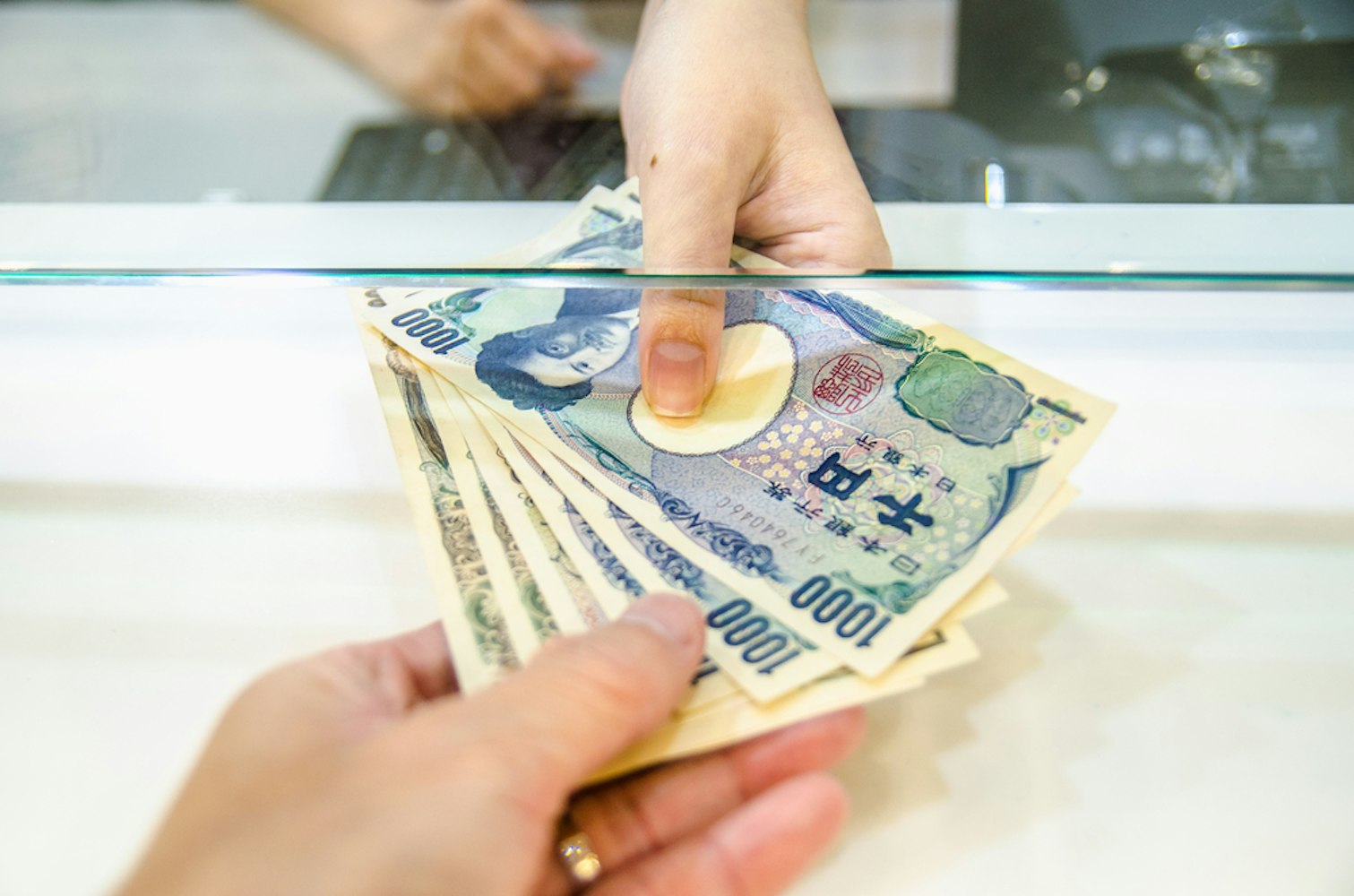
สนามบินหลัก
เคาน์เตอร์แลกเปลี่ยนเงินตราต่างประเทศที่สนามบินหลัก เช่น นาริตะ ฮาเนดะ และ คันไซ เป็นวิธีที่ไม่ยุ่งยากในการรับเงินเยนญี่ปุ่นทันทีเมื่อเดินทางมาถึง แม้ว่าราคาอาจไม่ได้ดีที่สุดเสมอไปเมื่อเทียบกับตัวเลือกอื่นๆ ในเมือง แต่ความสะดวกสบายและเวลาให้บริการที่ยาวนานทําให้เป็นตัวเลือกที่เชื่อถือได้สําหรับนักเดินทางที่ต้องการเงินสดอย่างรวดเร็ว
ธนาคารและเครื่องแลกเปลี่ยนเงินตรา
ธนาคารในญี่ปุ่นให้บริการแลกเปลี่ยนเงินตราต่างประเทศ แต่มักจะมีเวลาจํากัดและอาจต้องใช้เอกสารเพิ่มเติม อีกทางหนึ่งคือเครื่องแลกเปลี่ยนเงินตราในเมืองและสนามบินมีตัวเลือกที่ง่ายและมีประสิทธิภาพ: ใส่สกุลเงินต่างประเทศของคุณเลือก JPY และถอนเงิน
ร้านสะดวกซื้อและโรงแรม
ร้านสะดวกซื้อ เช่น 7-Eleven และ Lawson มีตู้เอทีเอ็มที่รองรับบัตรระหว่างประเทศ ทําให้ง่ายต่อการถอนเงินเยน นอกจากนี้ โรงแรมหลายแห่งยังให้บริการแลกเปลี่ยนเงินตรา แม้ว่าอัตรามักจะน้อยกว่าธนาคารหรือเคาน์เตอร์แลกเปลี่ยนเงินตราเฉพาะ
การใช้ตู้เอทีเอ็มในญี่ปุ่น
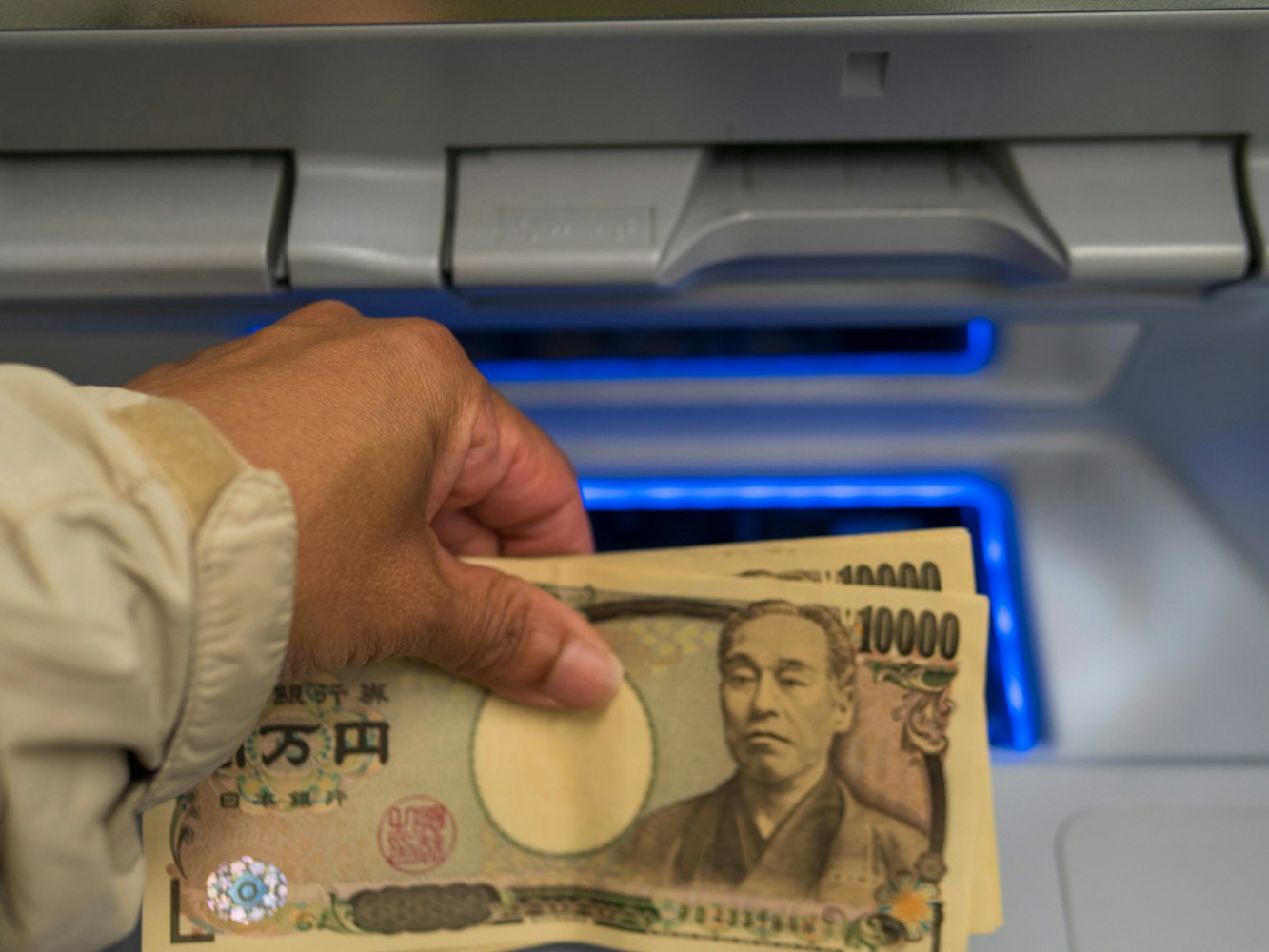
การใช้ตู้เอทีเอ็มในญี่ปุ่นเป็นตัวเลือกที่ตรงไปตรงมาและเชื่อถือได้สําหรับการถอนเงินเยน ตู้เอทีเอ็มส่วนใหญ่ให้การสนับสนุนหลายภาษา รวมถึงภาษาอังกฤษ จีน และเกาหลี เพื่อให้มั่นใจว่าผู้ที่ไม่คุ้นเคยกับภาษาญี่ปุ่นจะได้รับประสบการณ์ที่ง่ายดาย
คุณสามารถหาซื้อได้ตามสถานที่ที่สะดวก เช่น ที่ทําการไปรษณีย์ ร้านสะดวกซื้อ เช่น เซเว่น-อีเลฟเว่น และ ลอว์สันและธนาคารรายใหญ่ทั่วเมืองและเมืองต่างๆ ความพร้อมใช้งานอย่างแพร่หลายทําให้เป็นตัวเลือกที่ใช้งานได้จริงสําหรับการเข้าถึงเงินสดได้ตลอดเวลา
อย่างไรก็ตาม สิ่งสําคัญคือต้องทราบว่าเครื่องบางเครื่องอาจมีเวลาทํางานจํากัด โดยเฉพาะในพื้นที่ชนบทหรือที่ทําการไปรษณีย์ขนาดเล็ก
เคล็ดลับการใช้ตู้เอทีเอ็ม
ถอนเป็นทวีคูณของ ¥1,000
ตรวจสอบวัตถุประสงค์ของรหัสการชําระเงินสําหรับ JPY หากได้รับแจ้ง
ตรวจสอบให้แน่ใจว่าบัตรของคุณได้รับอนุญาตให้ใช้ระหว่างประเทศก่อนเดินทาง
ทําความเข้าใจอัตราแลกเปลี่ยน
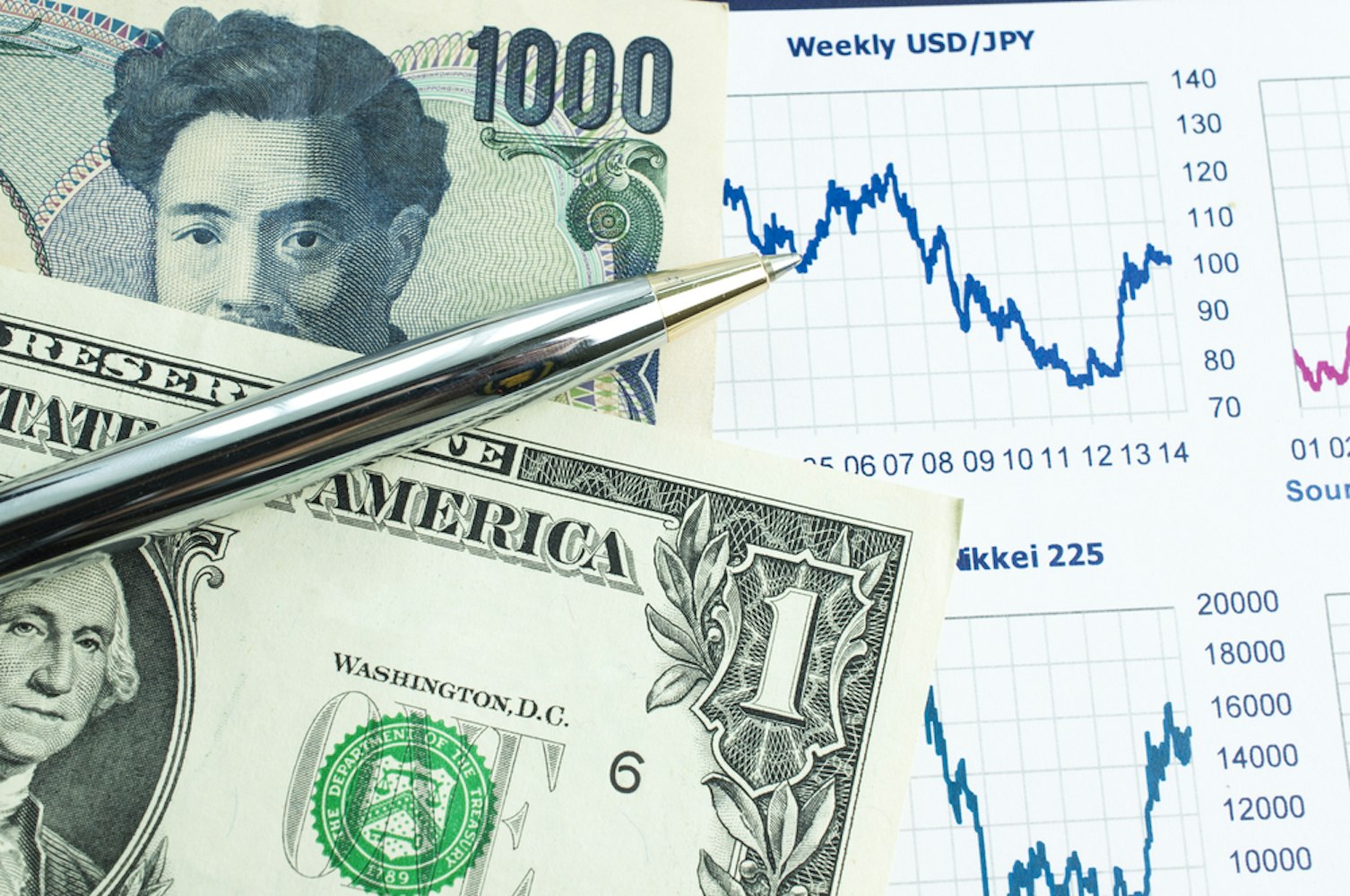
อัตราแลกเปลี่ยนระหว่างเยนญี่ปุ่น (JPY) และสกุลเงิน เช่น ดอลลาร์สหรัฐ (USD) หรือยูโร (EUR) ผันผวนทุกวัน โดยได้รับอิทธิพลจากแนวโน้มทางการเงินทั่วโลก ดุลการค้า และนโยบายเศรษฐกิจ ผู้เดินทางต้องเข้าใจอัตราปัจจุบันเพื่อให้แน่ใจว่าพวกเขาได้รับความคุ้มค่าสูงสุดเมื่อแลกเปลี่ยนเงิน
เครื่องมือต่างๆ เช่น ตัวแปลงสกุลเงินของ Google, XE หรือแอปการเงินเฉพาะจะอัปเดตอัตราแบบเรียลไทม์ ช่วยให้คุณวางแผนการแลกเปลี่ยนอย่างมีกลยุทธ์ นอกจากนี้ยังเป็นการดีที่จะเปรียบเทียบอัตราที่ธนาคาร เคาน์เตอร์สนามบิน และบริการแลกเปลี่ยนเงินตราต่างประเทศเพื่อหลีกเลี่ยงค่าธรรมเนียมที่มากเกินไปและเพิ่มเงินของคุณให้สูงสุดขณะเดินทางในญี่ปุ่น
บริบททางประวัติศาสตร์
ญี่ปุ่นนําเงินเยนมาใช้อย่างเป็นทางการในปี พ.ศ. 2414 ผ่านพระราชบัญญัติสกุลเงินใหม่ ซึ่งถือเป็นการปรับปรุงระบบการเงินให้ทันสมัยอย่างมีนัยสําคัญโดยแทนที่ระบบเก่าที่ซับซ้อนของสกุลเงินตระกูลและเหรียญทอง การปฏิรูปนี้มีจุดมุ่งหมายเพื่อรวมสกุลเงินของประเทศเข้าด้วยกันและอํานวยความสะดวกในการค้าในขณะที่ญี่ปุ่นเป็นอุตสาหกรรมและบูรณาการกับเศรษฐกิจโลก
ถัดไป สงครามโลกครั้งที่สองเงินเยนถูกตรึงไว้กับดอลลาร์สหรัฐภายใต้มาตรฐานทองคํา โดยกําหนดอัตราแลกเปลี่ยนคงที่ที่ 360 เยนต่อ 1 USD เพื่อรักษาเสถียรภาพของเศรษฐกิจในช่วงการฟื้นตัวหลังสงคราม อย่างไรก็ตาม เมื่อระบบการเงินโลกมีวิวัฒนาการ ญี่ปุ่นจึงเปลี่ยนไปใช้ระบบสกุลเงินลอยตัวอิสระในปี 1973 ทําให้มูลค่าของเงินเยนผันผวนตามอุปสงค์ อุปทาน และการเปลี่ยนแปลงของตลาด ซึ่งยังคงดําเนินมาจนถึงทุกวันนี้
เคล็ดลับในการจัดการเงินในญี่ปุ่น
ใช้มือทั้งสองข้างเสมอเมื่อให้หรือรับเงิน ซึ่งเป็นสัญลักษณ์ของความเคารพ
พกกระเป๋าขนาดเล็กสําหรับใส่เหรียญเนื่องจากมีการใช้กันอย่างแพร่หลาย
หลีกเลี่ยงการพึ่งพาเช็คของนักเดินทาง เนื่องจากไม่ค่อยได้รับการยอมรับ
เก็บธนบัตรขนาดเล็ก เช่น ธนบัตร 1,000 เยนและเหรียญเยนสําหรับตู้จําหน่ายสินค้าอัตโนมัติ ร้านสะดวกซื้อ และการขนส่งในท้องถิ่น
เชี่ยวชาญเรื่องเงินในญี่ปุ่น
การนําทางสกุลเงินญี่ปุ่นสามารถทําได้ตรงไปตรงมา โดยมีการเตรียมการและความเข้าใจ โปรดทําความคุ้นเคยกับเหรียญเยนและธนบัตร ซึ่งเป็นส่วนสําคัญในการทําธุรกรรมประจําวันในสังคมที่ใช้เงินสดเป็นส่วนใหญ่ของญี่ปุ่น
เครื่องแลกเปลี่ยนเงินตราที่สนามบินและเมืองต่างๆ นั้นใช้งานง่ายและมักจะเร็วกว่าบริการธนาคารแบบดั้งเดิม การเก็บเงินสด รวมถึงธนบัตรขนาดเล็กและเหรียญ ทําให้คุณสามารถจัดการการซื้อสินค้าได้อย่างง่ายดาย ไม่ว่าจะเป็นของว่างจากตู้จําหน่ายสินค้าอัตโนมัติ ของที่ระลึกจากตลาดที่พลุกพล่านของโตเกียว หรือชาสักถ้วยที่เงียบสงบพร้อมชื่นชม ภูเขาไฟฟูจิ.
ด้วยขั้นตอนง่ายๆ เหล่านี้ การจัดการเงินของคุณในญี่ปุ่นจะมีประสิทธิภาพและเชื่อถือได้พอๆ กับรถไฟหัวกระสุนที่มีชื่อเสียงระดับโลกของประเทศ
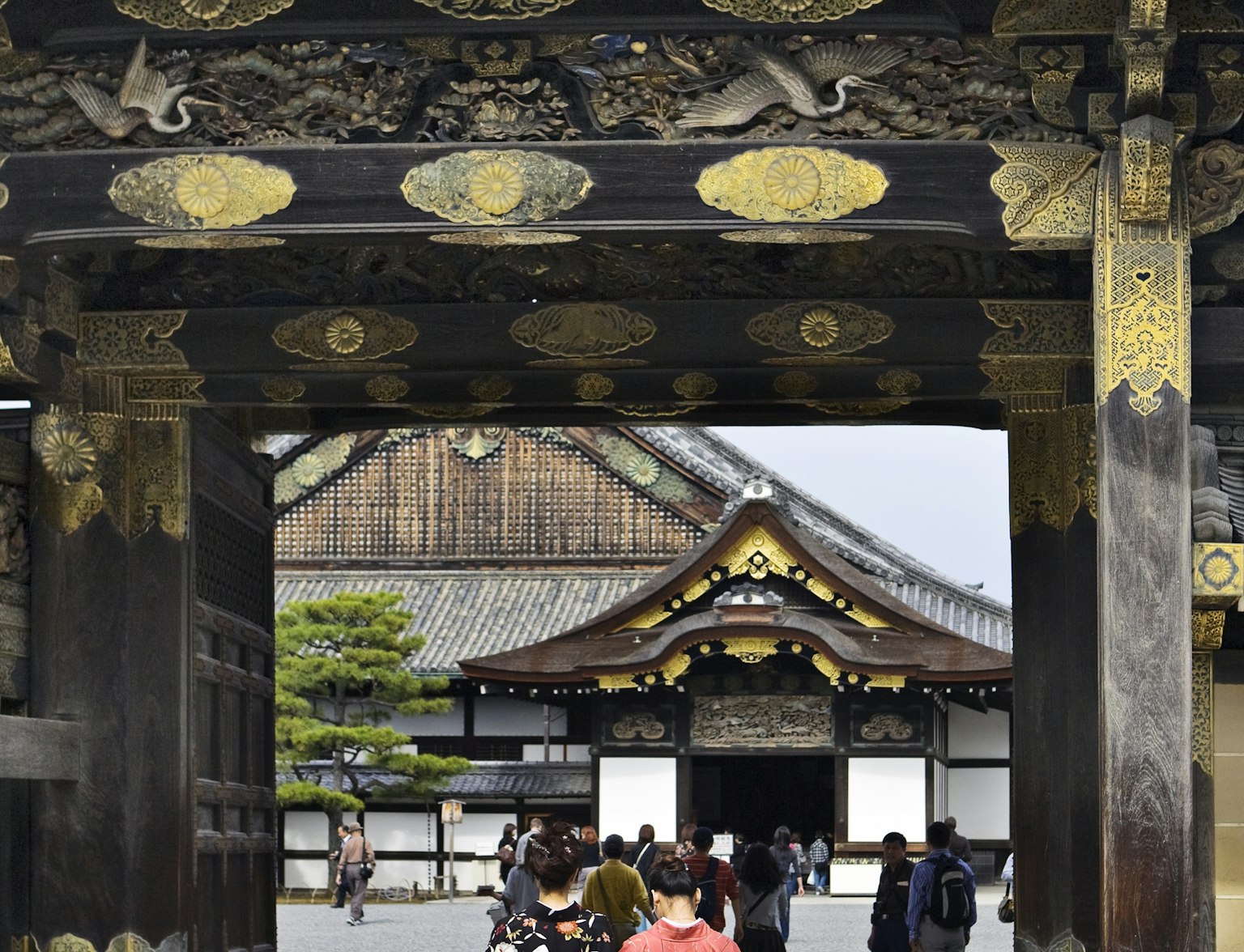
ค้นพบเสน่ห์เหนือกาลเวลาของเกียวโตด้วยทัวร์หนึ่งวันสุดพิเศษของเรา
คําถามที่พบบ่อย
ฉันสามารถใช้บัตรเครดิตระหว่างประเทศได้ทุกที่ในญี่ปุ่นหรือไม่?
ไม่ แม้ว่าบัตรเครดิตระหว่างประเทศ เช่น วีซ่าและ มาสเตอร์การ์ดจะได้รับการยอมรับในสถานประกอบการในเมืองหลายแห่ง แต่ธุรกิจขนาดเล็ก พื้นที่ชนบท และตลาดท้องถิ่นยังคงพึ่งพาเงินสดเป็นอย่างมาก
มีค่าธรรมเนียมการใช้ตู้เอทีเอ็มในญี่ปุ่นด้วยบัตรระหว่างประเทศหรือไม่?
ใช่ ตู้เอทีเอ็มส่วนใหญ่เรียกเก็บค่าธรรมเนียมการถอนเงินเล็กน้อยสําหรับบัตรระหว่างประเทศ และธนาคารบ้านเกิดของคุณอาจเพิ่มค่าธรรมเนียมการทําธุรกรรมต่างประเทศด้วย ตรวจสอบนโยบายของธนาคารของคุณล่วงหน้าเพื่อหลีกเลี่ยงความประหลาดใจ
ฉันสามารถชําระเงินในญี่ปุ่นโดยใช้ดอลลาร์สหรัฐหรือสกุลเงินต่างประเทศอื่น ๆ ได้หรือไม่?
ไม่ ญี่ปุ่นรับเฉพาะเยนญี่ปุ่นสําหรับการทําธุรกรรม แลกเปลี่ยนเงินตราต่างประเทศเป็นเงินเยนก่อนหรือระหว่างการเดินทางเสมอ
เช็คเดินทางยังรับในญี่ปุ่นหรือไม่?
เช็คเดินทางไม่ค่อยได้รับการยอมรับ แม้แต่ที่ธนาคาร และถือว่าล้าสมัย ควรพึ่งพาเงินสด บัตรระหว่างประเทศ หรือตู้เอทีเอ็มสําหรับความต้องการทางการเงินของคุณ
ร้านสะดวกซื้อจะคิดค่าบริการเพิ่มเติมสําหรับการถอนเงินสดที่ตู้เอทีเอ็มหรือไม่?
ตู้เอทีเอ็มของร้านสะดวกซื้อ เช่น ตู้เอทีเอ็มในเซเว่นอีเลฟเว่นหรือลอว์สัน มักจะเรียกเก็บค่าธรรมเนียมเล็กน้อย แต่ก็ขึ้นอยู่กับผู้ออกบัตรของคุณ อย่างไรก็ตาม พวกเขาเป็นหนึ่งในตัวเลือกที่น่าเชื่อถือที่สุดสําหรับการถอนเงินเยน



